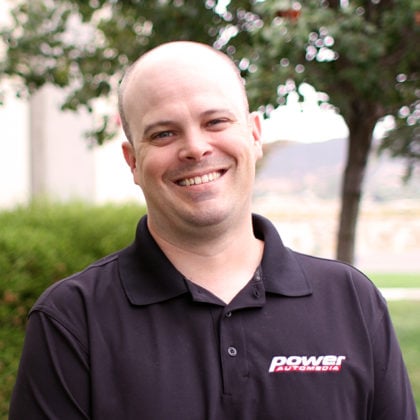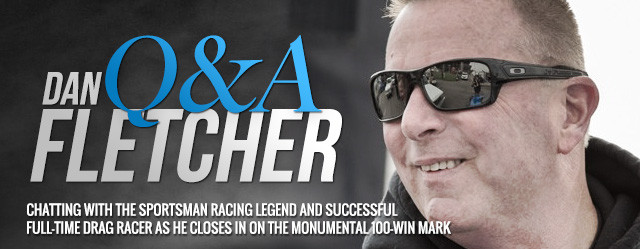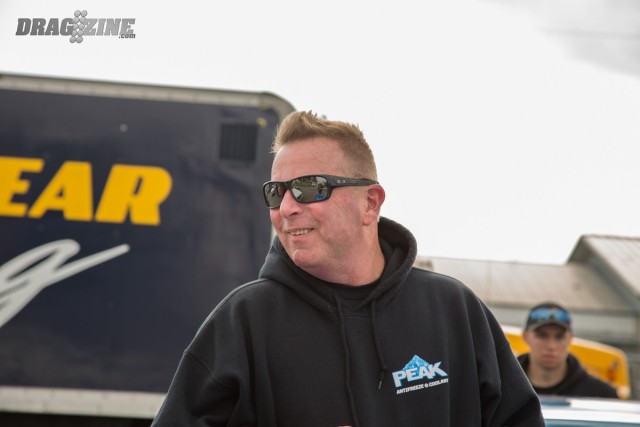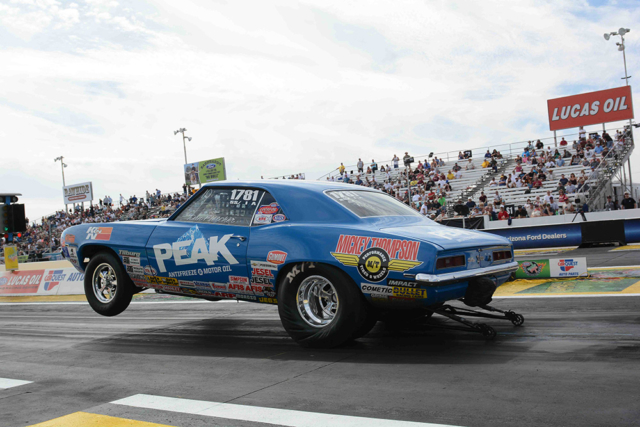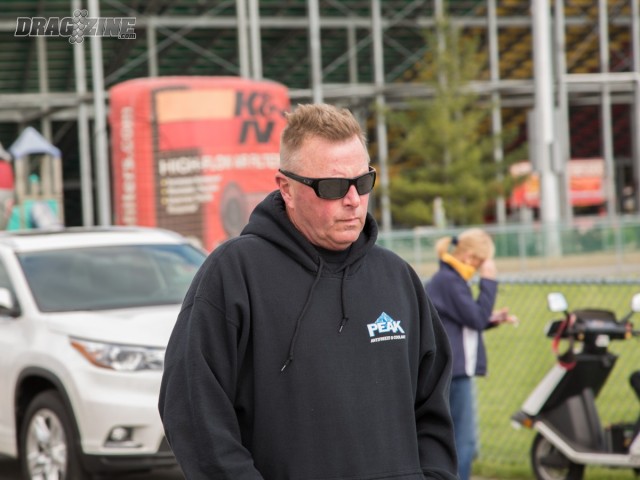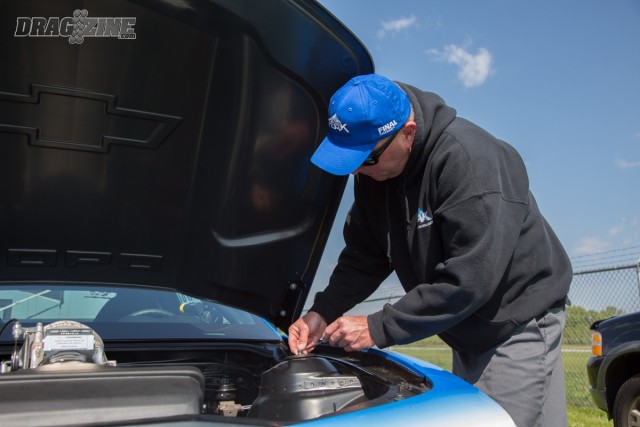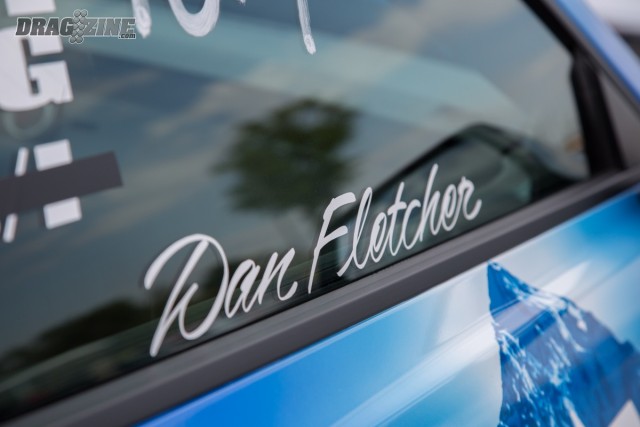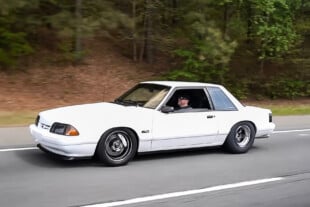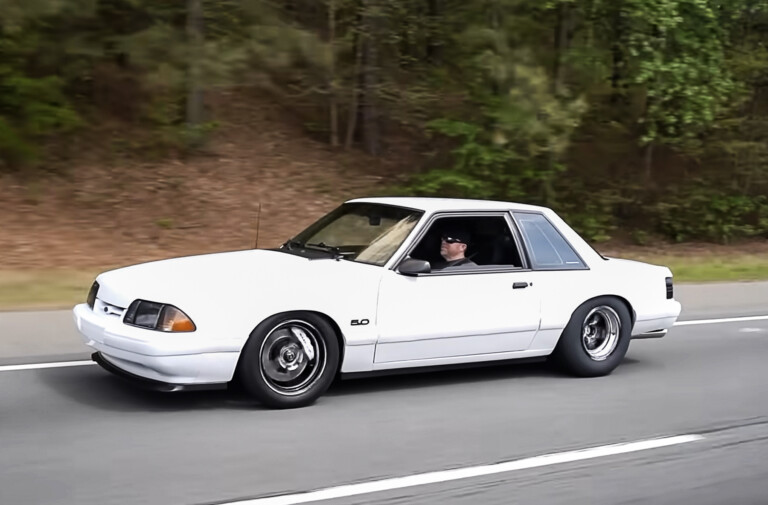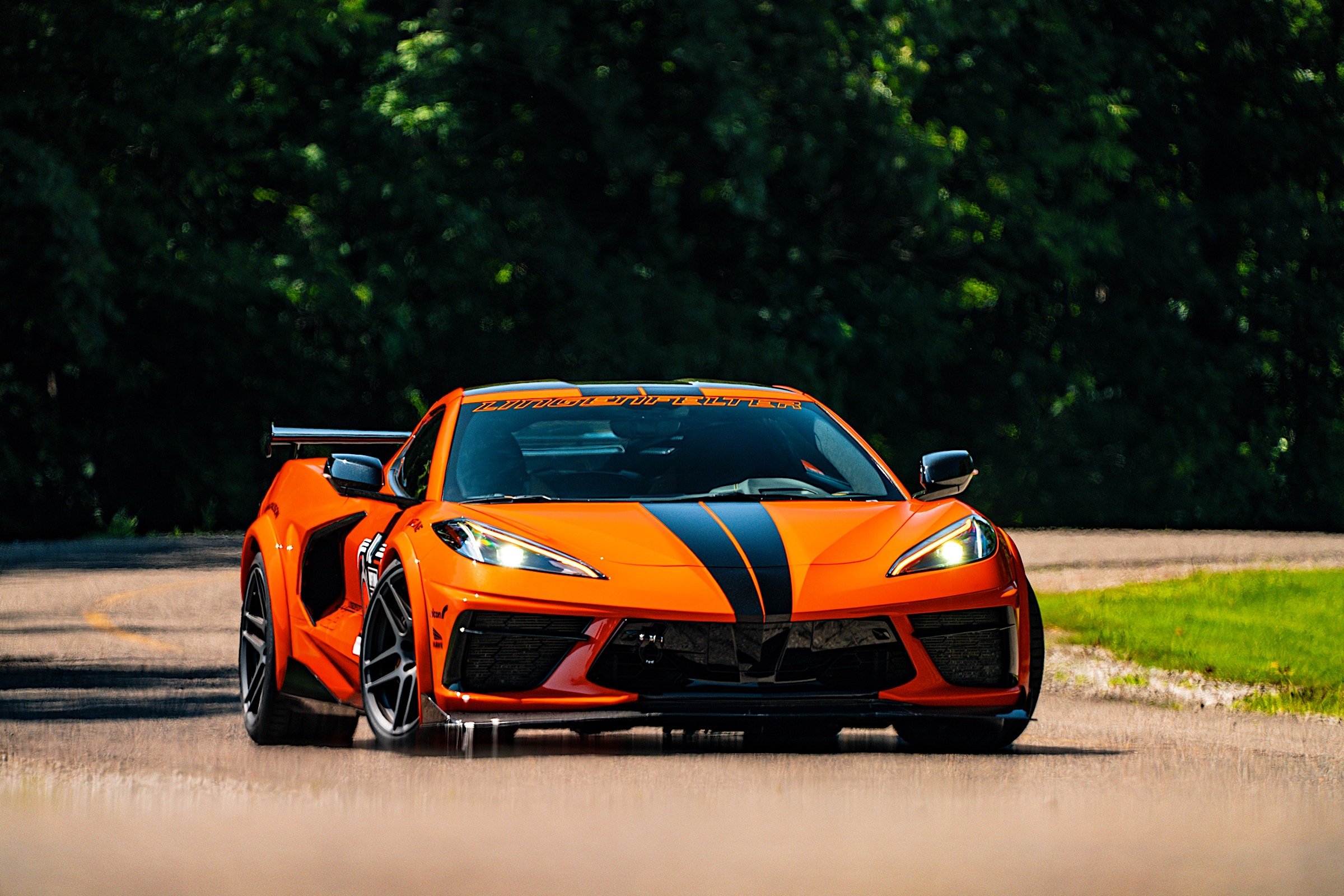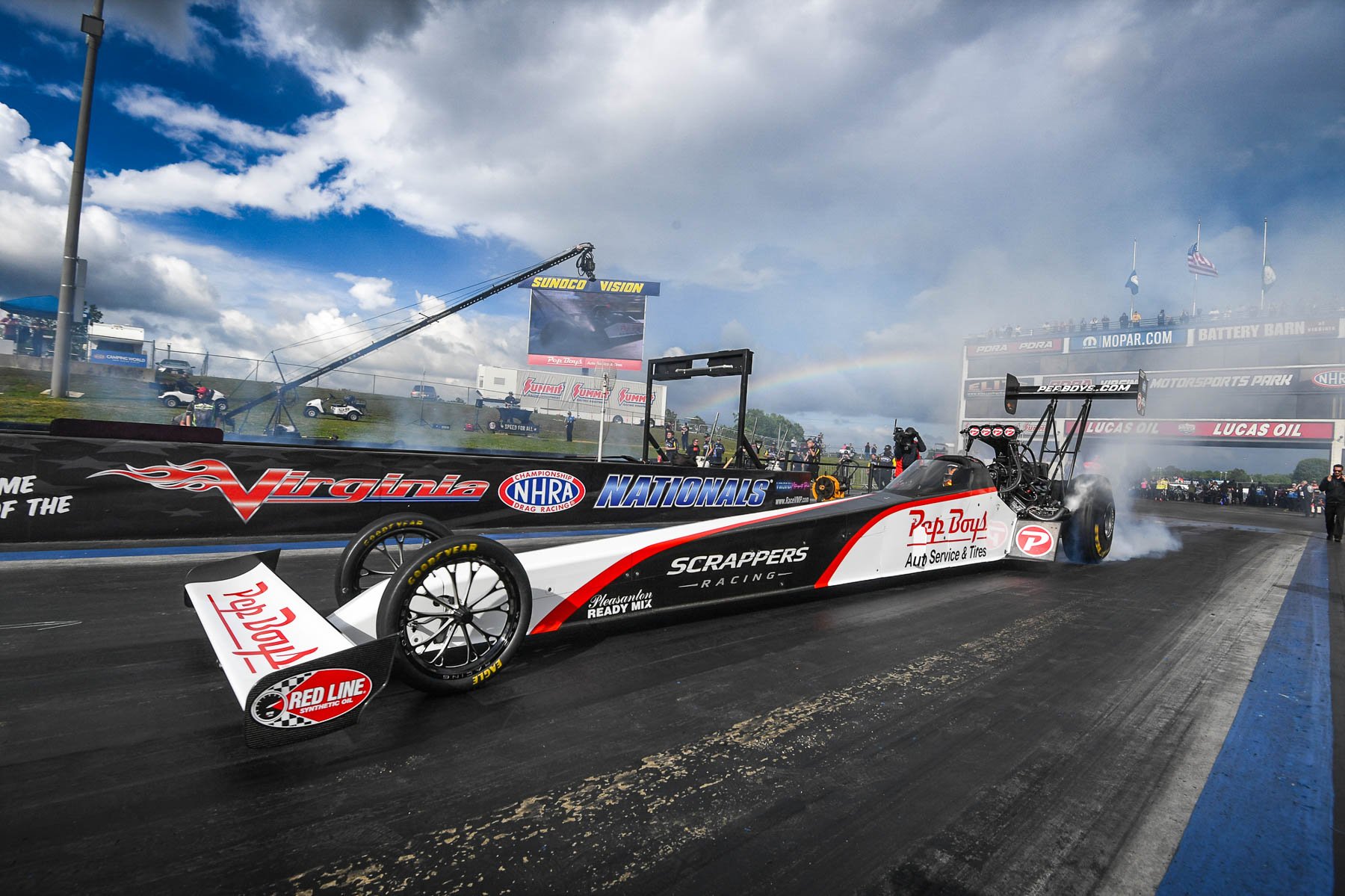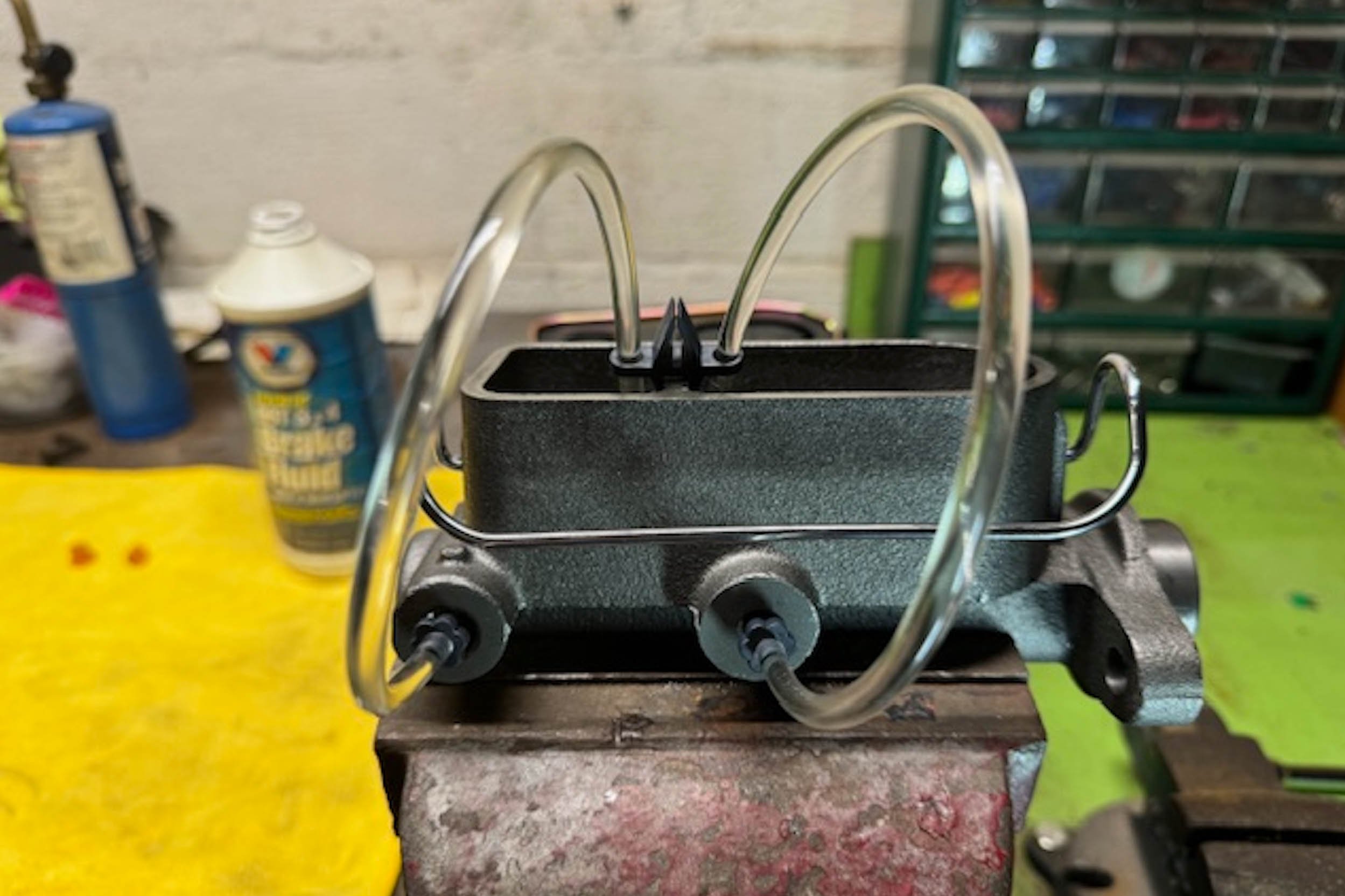Drag racers share many attributes with gladiators of bygone eras — each has a strong commitment to his cause and a desire to win at all costs. And that exemplifies one of the most prolific and decorated racing warriors to ever compete on the 1/4-mile: sportsman racing legend Dan Fletcher. Since he began sportsman racing in the NHRA during the ‘90s in his father’s Camaro, Fletcher has cut a path of wins that is nearly unheard of in the modern era of racing.
We caught up with Fletcher at one of the many NHRA Lucas Oil divisionals on his annual calendar to chat with the sportsman icon. In our conversation we touched on several different topics including what classes Fletcher enjoys most, his candid response to what it’s really like to be a professional sportsman racer, and what the future holds for him.
Dragzine (DZ): Dan why don’t you give us a little background on your racing history?
Dan Fletcher (DF): I started racing like most everyone does — because of their father. As I got older I wanted to get into racing more, just like my dad. I was pretty much a racing junkie growing up, a lot like my own adult children who can’t get enough of it. Racing is now my job and career, so I’m blessed to be doing this. I’ve raced professionally for 20 years now, and I’m closing in on the 100 win mark here with the NHRA and it’s been a great ride. This can be a tough way to earn a living, but it really has been wonderful.
DZ: You do a ton of racing in just about anything with wheels at a drag strip … what’s the one car that’s your go-to when it comes time to really turn on the win lights?
DF: It would be my dad’s car, the Super Stocker, no doubt about it. He bought the car brand new, and it’s been a racecar its whole life. I’ve driven the car since I was 18 years old — it’s just an extension of me. The car is almost like a child to me, that’s how special it is. It really just means a lot to my racing career and I enjoy wheeling it every time I belt in.
DZ: Since this is what you do for a living, how amped up are you when eliminations roll around?
DF: Well, I’ll be honest with you, I used to be pretty amped up for each race. I would take winning and losing really hard, and when I lost, I would never take it well at all. I had to win every time and be perfect every time and that started to wear on me. Eventually, you start to mature over time and begin to mellow out over all of this. I race two cars every week, and a lot of times I end up taking a good beating, but on the flip side, I’m able to get by and win about 10 or so times a year. You have to be able to absorb the losing and that’s the hardest part about this deal. I go up there very prepared every time, but I’m not wound nearly as tight these days. As I’ve gotten older I have become more even-keeled, but I’m still very type-A with my personality and want to win every round.
DZ: You stay pretty busy as a professional sportsman racer it seems. What classes are you currently running at different NHRA events across the country?
People think that we just roll around and pick up trophies, but there’s so much more to it than just the winning.
DZ: How many different race cars do you campaign and maintain right now that you personally own?
DF: At this point, I have a total of six cars that we race, and I’m blessed with the sponsorship deal to help make it possible. It was a lot of work when it was just one car with one motorhome but now it’s crazy. We have four that are actively raced every single week at different tracks between myself and my two boys, Thomas and Timothy. Thomas has an S-10 that he runs in Super Street and bracket races. Timothy has a Nova he runs at different bracket races and some NHRA national events.
When you’ve got this many cars running, we’re always working on and fixing something with them. I pretty much do all of the work on the cars myself, except ATI hooks me up with parts for the transmissions and Bob Lasket builds them for me. Brian Tilburg builds all of the motors that I use, but the maintenance of the cars and repair work is all me.
DZ: Let’s talk about your main classes, Stock and Super Stock. What’s the big difference between the two classes for you?
DF: Well, in Super Stock, the car is allowed to have more modifications and a transbrake, which sometimes I think is good and sometimes not. There are times where I think I drive the Stocker better on the footbrake than I do the Super Stocker on the button. The Super Stock car is really my bread and butter … that’s the class where I made a name for myself. It’s the class where I’ve got the most wins — I think over 50 in that class alone — and was the one I started racing in with my dad.
I don’t want to downplay it, but honestly Stock and Super Stock are pretty much a bottom bulb bracket race unless you get in a heads-up situation. Like with my Stocker, I typically run Factory Stock/G class, so at a lot of events there are not many of those cars and the chances of a heads-up race are slim. With the Super Stock car, I’ve top bulb bracket-raced it at a big event one week, and then taken it out and run Super Street with it the following week, so it can do a lot.
DZ: Between the fuel injected Stock class car and the Super Stock car that uses a carburetor, what’s the difference between those two cars when you’re trying to tune them at the track?
DF: There’s a big difference in tuning on both. The Super Stocker has a quadrajet on it and that’s as old school as you can get, versus the modern fuel injection on the COPO Stocker. Generally, I get a tune-up in the Super Stocker that’s pretty forgiving, other than when we go to Denver. We can go from running in really good air in Gainesville, to pretty much muck in Topeka, Kansas with almost the same tune up in the car. As long as I have it in the middle and forgiving, the car will do what I need it to do.
The fuel injected COPO I have, with the technology and the Holley system on it, is amazing. This really is a factory-built race car that I just had to drop the driveline in. The Holley unit came with a default tune, and I was fortunate enough to get help with the final tune from GM and David Barton. I got the car out at Indy two years ago and struggled getting the tune right.
Last year was our first full season, and I still struggled getting the car as good as I wanted it. We finally made some adjustments with the tune this year, and I have a better grasp on how to adjust it. Now it’s a real race car for sure, and it does what it needs to do. Both the Stocker and Super Stocker move together with the air on how I tune them, so I’m very happy with how each can be adjusted at the track.
DZ: What’s it like to be a professional sportsman racer in the NHRA?
DF: It’s not very smart, I can tell you that much, to feed your family and pay the mortgage with race winnings each year. When I first left Xerox after ten years to go race full-time professionally I had zero sponsorship — none. I had to win everything to pay the rent and bills at home. Back then, in the late ‘90s, you could win $20,000 from winning a Super Stock event, but now it’s about half of that to win an event.
It has made it a bit more difficult with the reduced contingency money and whatnot. I’m a one-man band with this operation; I take care of all the race cars, the truck, the trailer, the marketing and the logistical planning. People think that we just roll around and pick up trophies, but there’s so much more to it than just the winning.
DZ: What would you consider your greatest racing achievements so far in your career?
Really my greatest achievement is that I’ve been able to support my family and raise three children by killing my own food at the race track.- Dan Fletcher
DZ: If you could go back in time and catch yourself at the beginning of your professional career, what advice would you give to young Dan Fletcher to make things easier and maybe get ahead quicker?
DF: That’s an interesting question. I think I had a pretty good plan from the start when I made the jump to racing full-time. To get ahead quicker, I would tell myself to just always keep working hard. The key to this whole deal is like anything else in life, it just comes down to hard work and always digging to get ahead. This has been far from easy, and the extra effort always helps to get ahead in this deal when you’re grinding it out this much. Other than that, I would tell young Dan Fletcher to just save more money from the racing.
DZ: Taking everything that you’ve done over the years into consideration, what’s next for Dan Fletcher?
DF: Hopefully, if Peak will have me, I’ll sign another two or three year contract with them to keep my racing career going. I really want to hit 100 wins and maybe get past Manzo on the all-time list, because I’ll obviously never catch Force with all of his victories. Besides all of that, I really want to keep earning a living racing. I wear a hard hat doing this, it’s my job and I clock in every day to do it. People think it’s glamourous, but the truth is that it’s far from it; I’m a blue collar working guy doing my thing.
Eventually, I would like to maybe cut back a bit on the national travel and just run a regional schedule. I would be happy doing just like eight national events a year and mix in more bracket racing. I would enjoy and be happy at the local track coaching my kids, being a crew chief and advising them. I think that I’m a pretty good racer, but I know that I’m a really good coach and I enjoy doing that a lot.
DZ: You enjoy working with your kids a lot racing, so is it safe to say we will be seeing the Fletcher name on the ladders at different events for years to come?
DF: I’m afraid so. Both of my boys are big racing addicts and love to be at the track. Each of them have full-time jobs but still love to race as much as they can, no matter if it’s a big bracket race or an NHRA event. They spend all of their vacation going to these big events and wheeling their cars as often as possible.
My next big problem is my daughter — she’s 20 and in college, but is making all kinds of noise about wanting to drive a racecar now. She really is interested in driving a dragster and I keep telling her I can’t afford that … I already have six race cars! I’m thinking that my 1969 Stocker might be her bracket car here in a little bit.
I’m so blessed to have sponsorship like I do, because if I didn’t have the help I do from Peak, Mickey Thompson, K&N, Denso Spark Plugs, and all the product sponsors, I wouldn’t be able to do this,” Fletcher says in closing. “When I walked out of Xerox 20 years ago and decided to go racing full-time I had a plan … I knew that I had to win at least one national event a year and gross a certain amount to keep the lights on. Nowadays, that’s just not a viable model anymore, my oldest son, Thomas, wants to be me and you just can’t do it anymore. It takes multiple revenue streams to keep things going.”
Many racers or fans dream of the idea of being a full-time wheelman, but Dan Fletcher made the choice and the sacrifices to do it and he created an action plan to make it happen. Fletcher is proof that in the racing world, if you’re willing to put the time in, dreams can come true. His razor sharp focus and his white-hot desire to win have elevated him to a status in drag racing that few, if any, will ever come near.


